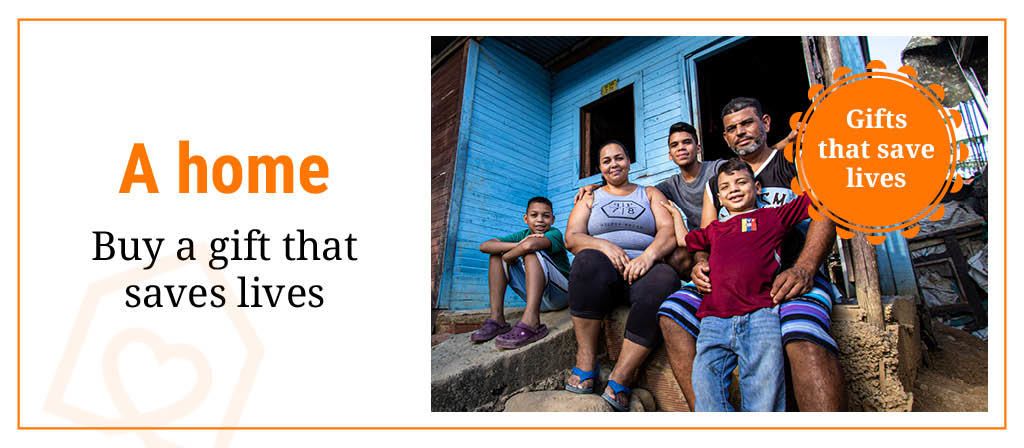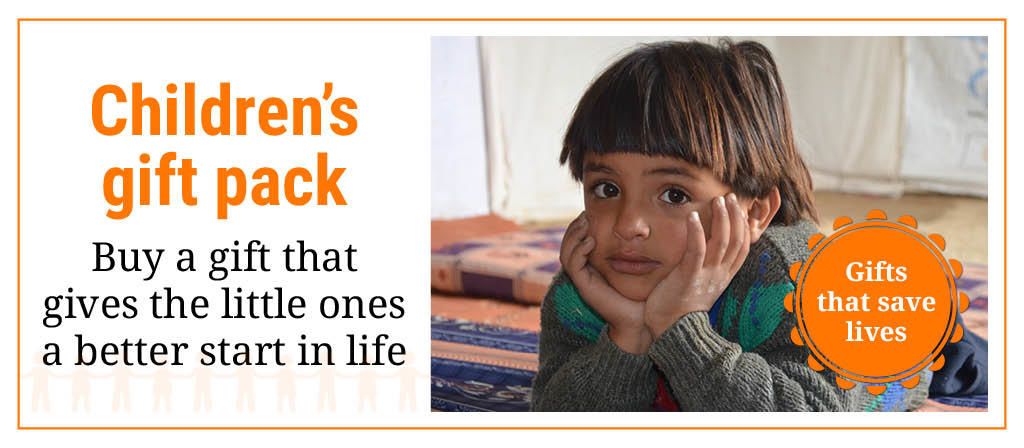The family that built a farm
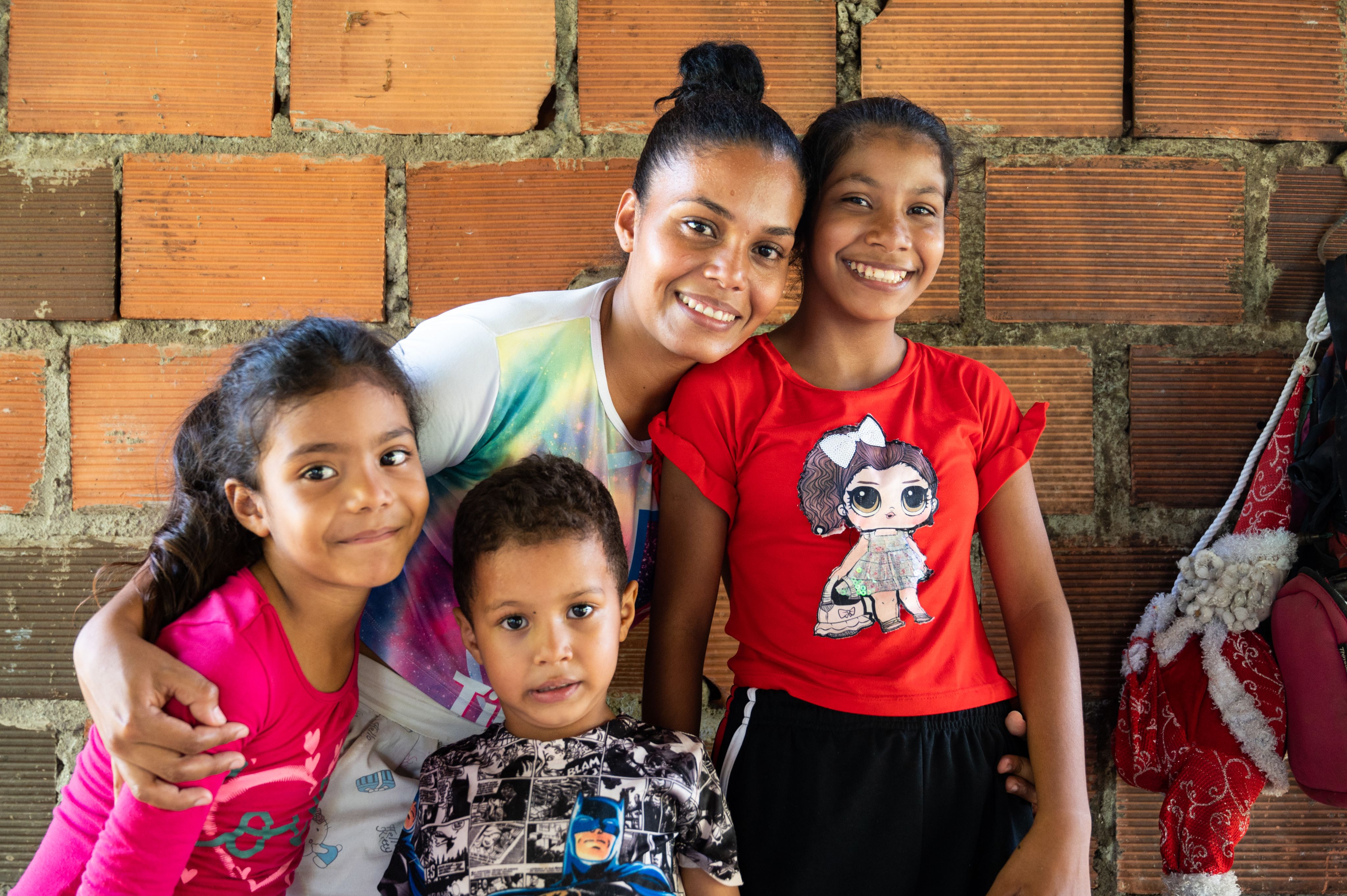
It’s been three years since Solmarina and her husband packed up their three children and left Venezuela. They’d run out of food and their daughter’s vital medication. Today, despite poverty and insecurity in Colombia, this hardworking, loving mother has built a sanctuary to protect her children.

We’re in Cucuta, a large Colombian city on the border with Venezuela. It’s a hot, bustling place where daytime temperatures rarely dip below 30C. The city is home to the Simón Bolivar bridge – a key border crossing for Venezuelans fleeing the social and economic crisis in their homeland.
Solmarina and her family live on the outskirts of the city. To reach their home you must walk across a rickety bridge over a murky stream. When you reach the other side, you will find a sanctuary.

From pigsty to family home
This secluded place has been the family’s home since they arrived in Colombia. The landlord had previously used the small building and plot of land to house pigs. It was unfit for a family of five.
“When we arrived, we had nothing,” says Solmarina. “We slept on a thin mattress and cooked on wood. It was very difficult.”
But not anymore. There’s an immediate sense of home here. It’s calm, welcoming, and cool. It’s a place you want to spend time in and explore. Solmarina has transformed it into an almost completely self-sufficient, even beautiful, home.
Papaya, potatoes, lemons and tropical plants grow in the garden. Dozens of chickens, a handful of ducks, two dogs and a kitten roam the land freely. Two pigs and a piglet have a small sty in the garden. In one corner of the garden, colourful paintings line the walls – the children’s “homework corner”.
Solmarina’s husband works in construction, but the work is currently very unstable. This makes it difficult for the family to pay for the simple things like gas for cooking. But by growing their own food, they have been able to relieve some of the financial pressure.
“We’ve made it into a home little by little,” Solmarina says proudly. “We have water at the house now. When we first arrived, there was nothing. We don’t have electricity yet, but we hope to one day.”
When asked what the mum of three likes most about the home, she replies: “The quietness. We used to have animals before we fled, so this is our little piece of Venezuela.”
The best Christmas gift is the one you give. Buy a temporary home for a family today:
The images below show details of the family's farm. Click on an image to expand.
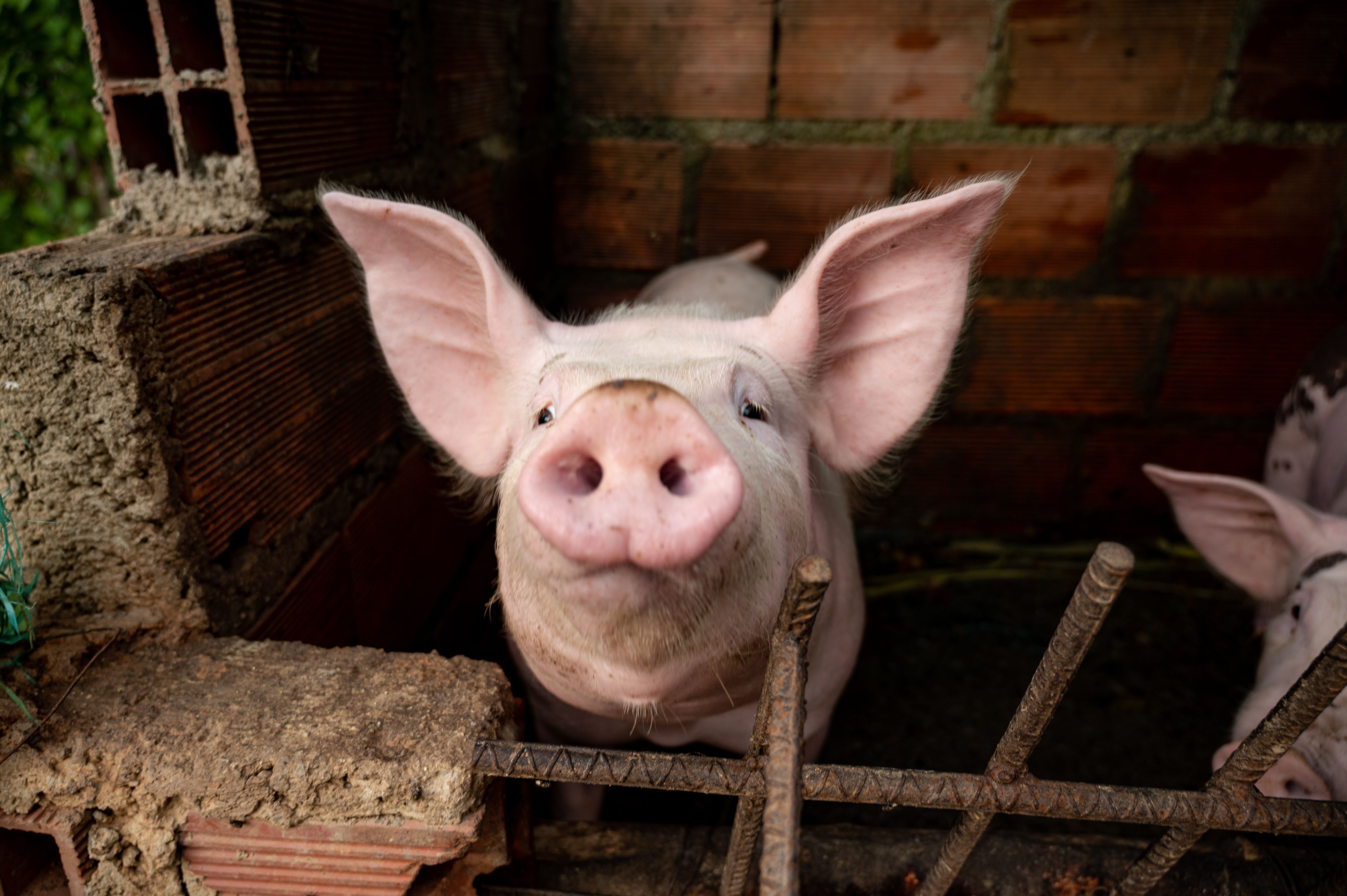
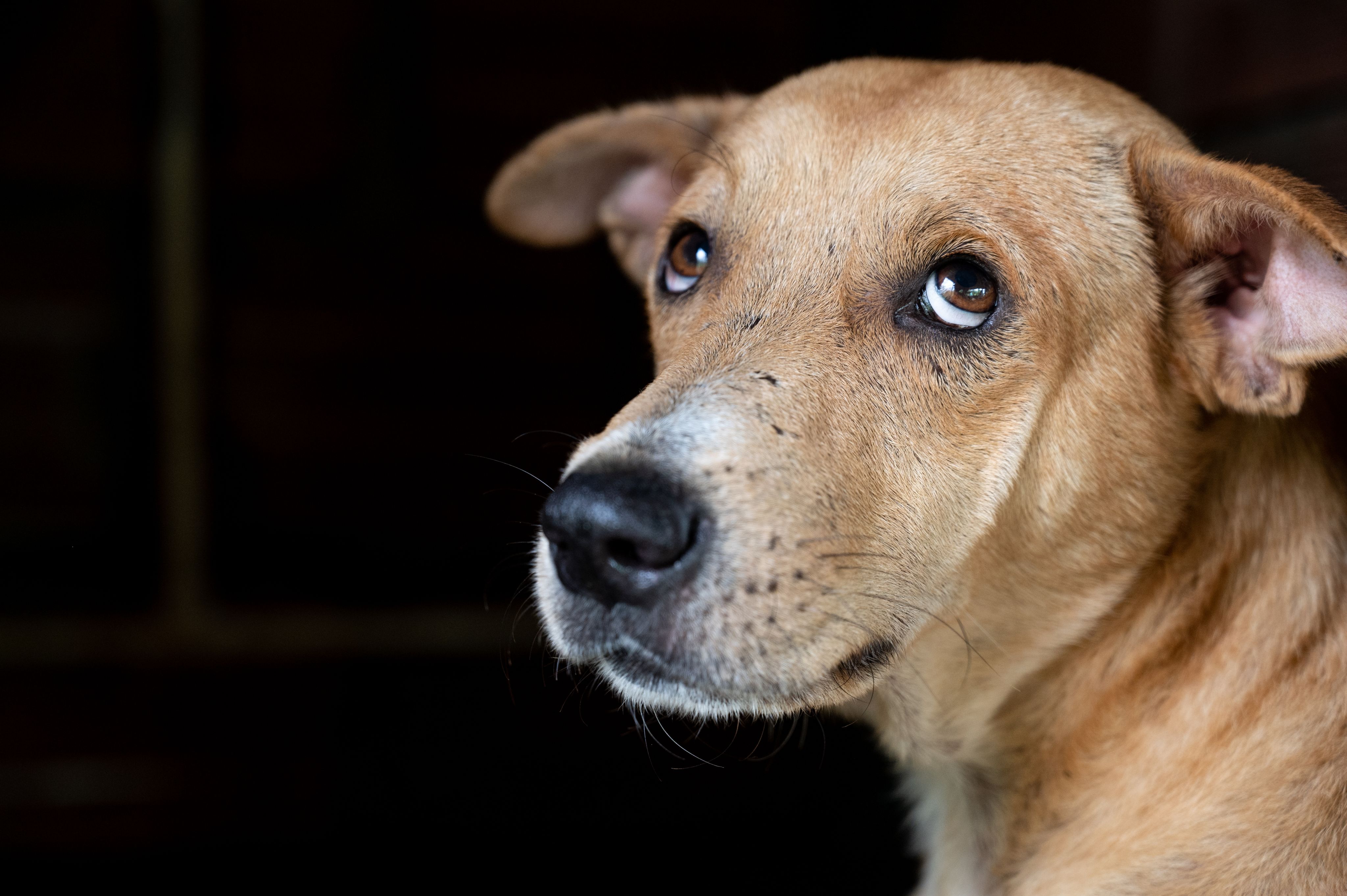
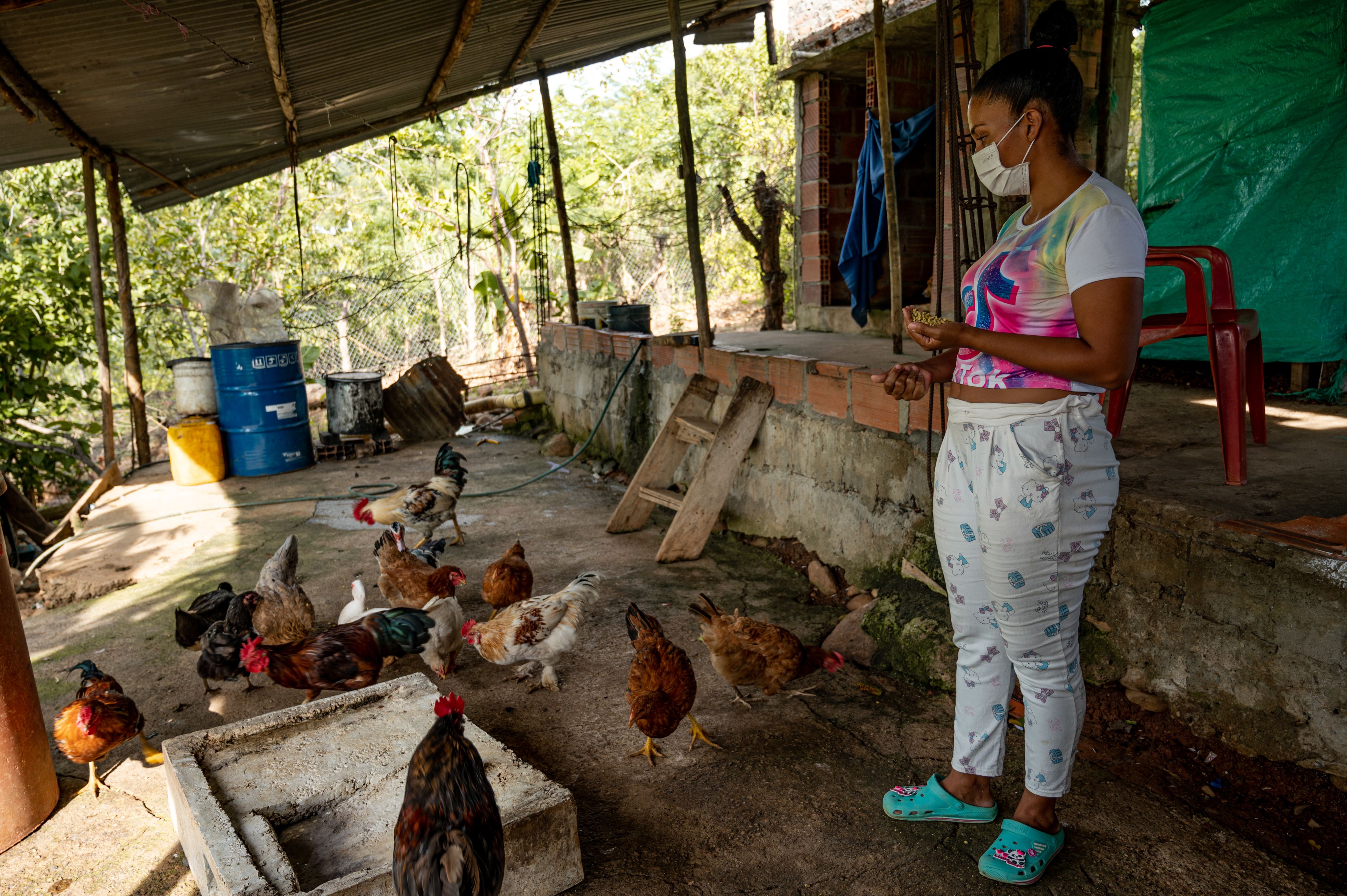
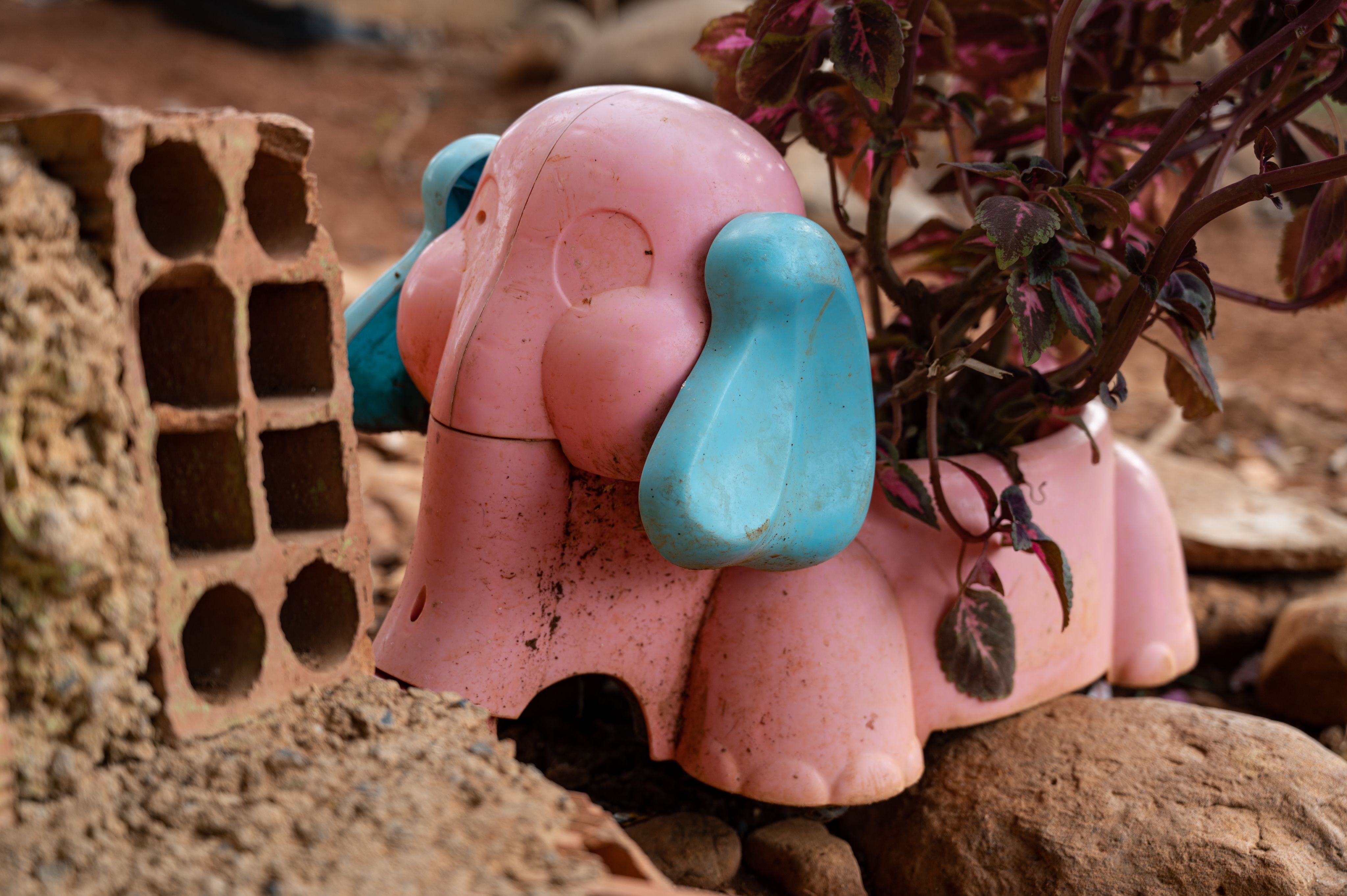
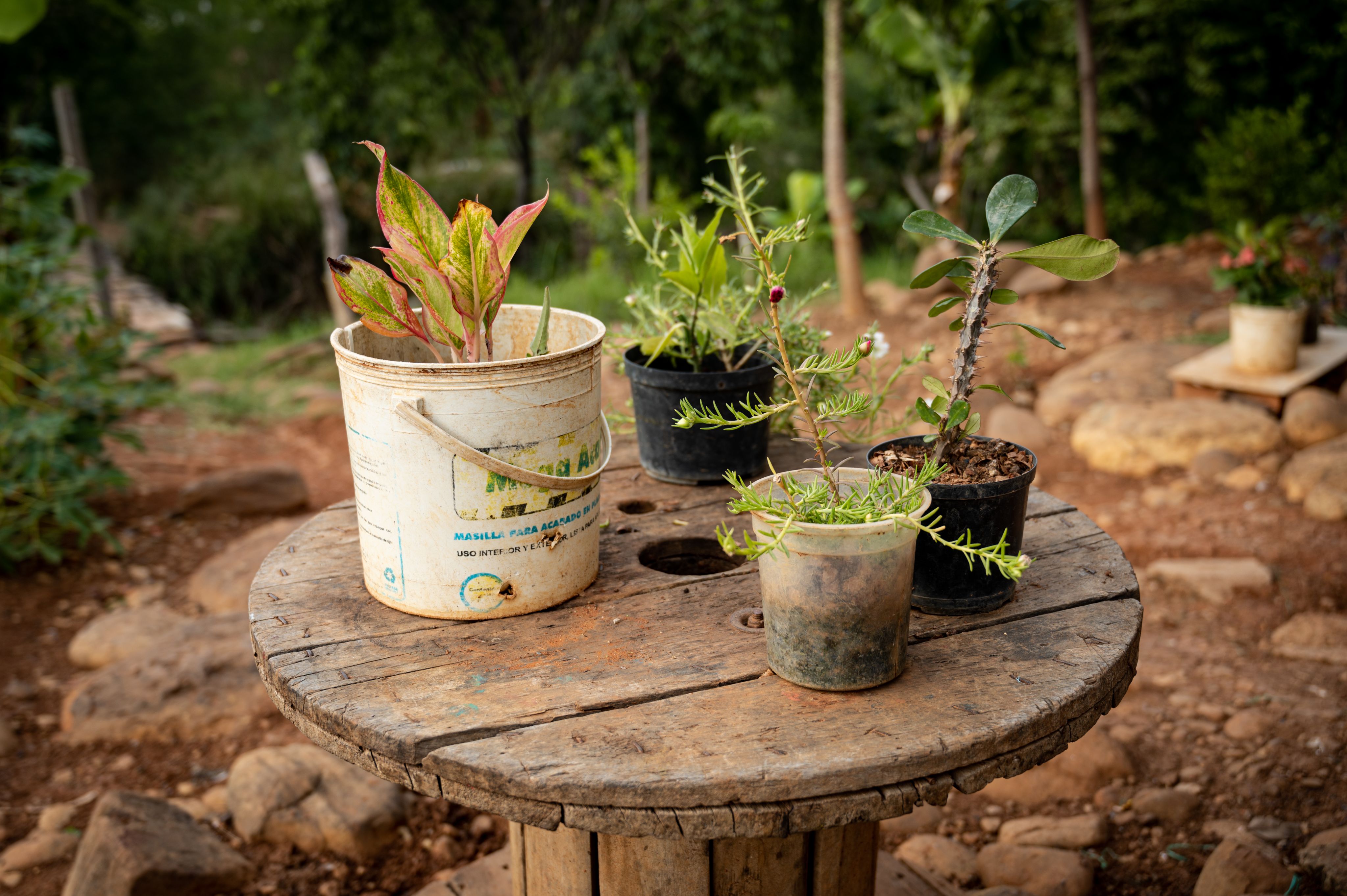

One of the family's pigs. Photo: Christian Jepsen/NRC
One of the family's pigs. Photo: Christian Jepsen/NRC

One of the family's much-loved dogs. Photo: Christian Jepsen/NRC
One of the family's much-loved dogs. Photo: Christian Jepsen/NRC

Solmarina feeding the chickens. Photo: Christian Jepsen/NRC
Solmarina feeding the chickens. Photo: Christian Jepsen/NRC

A plant pot made from an old discarded toy. Photo: Christian Jepsen/NRC
A plant pot made from an old discarded toy. Photo: Christian Jepsen/NRC

Solmarina uses materials she can find to pot new plants. Photo: Christian Jepsen/NRC
Solmarina uses materials she can find to pot new plants. Photo: Christian Jepsen/NRC
Shielding her daughter from harm
Creating this sanctuary has been especially important to Solmarina because of her eldest daughter. Ten-year-old Solimar has a disability.
When she was three years old, Solimar started having seizures. They stopped temporarily, but started again when she was five. This time, she was diagnosed with epilepsy.
“The doctors started giving her medication,” Solmarina explains. “They gave her strong drugs to calm her down. But she had to stop taking the pills because it was impossible to get hold of them in Venezuela. That’s one of the reasons we moved here. That, and because we didn’t have enough food.”
When the family first moved here, Solimar was able to get medical attention. But due to the dramatic increase of Venezuelans arriving in Colombia, the hospitals started refusing to provide free treatment to undocumented migrants.
Solimar needs neurological attention, physical therapy, a psychologist, vitamins and language therapy. “We simply can’t afford it,” the loving mother shares with regret.
The Norwegian Refugee Council (NRC) has provided the family with legal support so that they can obtain documentation in Colombia. This will give Solimar access to hospital treatment, as well as enabling Solmarina’s husband to secure a more regular income. But they are still waiting for a response.
In the meantime, Solmarina is doing everything to shield her daughter from harm. “She’s a happy child,” the mother says. “She’s innocent. She doesn’t know about the bad things happening in the world, so she is happy.”
Venezuelans in Colombia
Over the last six years, the collapse of services and decline in living conditions in Venezuela have prompted one of the biggest mass displacements in the history of South America. More than 5.8 million Venezuelans have left their country.
Millions have fled over the border into neighbouring Colombia. When they arrive, many face a brutal reality of poverty, danger and discrimination. “Without shelter, education or work, I had to sell sex for survival,” one migrant in Colombia told NRC.
Read more about the situation for Venezuelans in Colombia
In February 2020, the Colombian government announced that it would provide temporary protection status to the 1.7 million Venezuelans living within its borders. A promise that is yet to be realised.
NRC is present on the border, providing food, legal assistance and educational support. But the overall humanitarian response is drastically underfunded.
One-to-one learning
Solimar attended kindergarten and has completed grades one and two in school. But her disability put her learning on hold.
“She had to stop school because of her medical condition. It’s difficult for her to remember things. If you explain something one day, she has forgotten it the next,” says Solmarina.
“My daughter struggles to hold a pen. She is still learning because she keeps forgetting.”
Thanks to funding from Education Cannot Wait, NRC is providing a tutor for Solimar. The tutor comes to the home twice a week and not only teaches Solimar the national curriculum, but also provides physical therapy. Both are important to enable Solimar to one day rejoin her peers in the classroom.
“This one-on-one learning that NRC is providing is so important for her to be able to learn,” says Solmarina. “We are very grateful for the support. My daughter is learning so much.”
Solimar is shy but has developed a strong bond with her tutor. When they’re together, learning is fun.
The best Christmas gift is the one you give. Buy a children’s gift pack today:
A mother's love
Despite all the obstacles, Solmarina has provided a safe place for Solimar and her other two children to live and learn.
“My daughter is lovely. She is a blessing. She and her siblings are united. She’s the big sister, but her younger sister looks after her like she’s the older one.”
When we ask Alfreimar, 6, what she loves most about her sister, she says “everything”. This makes Solmarina smile. “They’re so innocent. They look out for each other,” she says.
The family farm that Solmarina has built provides the children with a safe place to live, be happy and learn.
Life in Colombia is extremely tough for the vulnerable Venezuelans living here, who lack protection and security. The best gift is the one you give – buy a gift that saves lives this Christmas.


